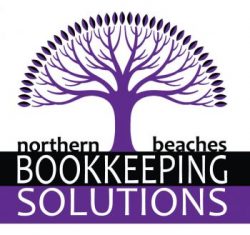Being paid “off the books” – also known as under-the-table payments – is when an employer pays workers cash without recording the payment in their accounting records or reporting it to the Australian Taxation Office (ATO). While it may seem like a quick way to avoid taxes, being paid off the books is illegal and carries serious consequences for both employers and employees. Here’s what small business owners and employees need to know.
What Does “Being Paid Off the Books” Mean?
When employees are paid off the books, their earnings are not recorded in the employer’s payroll system, and the necessary taxes, superannuation, and other contributions are not withheld or reported. This practice is considered tax evasion and is a violation of Australian tax laws.
Why Do Employers Pay Off the Books?
Some employers pay workers off the books to avoid paying payroll taxes, superannuation, and workers’ compensation insurance. This illegal practice can also allow employers to pay workers less than the minimum wage or avoid paying overtime rates. However, the short-term financial gain is heavily outweighed by the legal and financial risks involved.
Risks for Employers Paying Off the Books
Employers who pay workers off the books face significant legal and financial consequences, including:
- Penalties and Fines: The ATO can impose severe penalties, including fines and back payments for unpaid taxes, superannuation, and workers’ compensation.
- Legal Action: Employees can file claims for unpaid wages, overtime, and entitlements, leading to costly legal battles.
- Loss of Business Reputation: Being caught engaging in unlawful practices can damage a business’s reputation and lead to lost customers and partnerships.
- Criminal Charges: In severe cases, paying workers off the books can lead to criminal prosecution for tax fraud or wage theft.
Risks for Employees Paid Off the Books
Employees who accept under-the-table payments may face serious repercussions, including:
- Loss of Legal Protections: Workers paid off the books are not covered by workers’ compensation, superannuation, or unfair dismissal laws.
- Inability to Claim Benefits: Cash payments that are not reported cannot be used as proof of income for Centrelink benefits, loans, or credit applications.
- Tax Liabilities: If the ATO discovers unreported income, the employee may be liable for unpaid taxes, interest, and penalties.
- Job Insecurity: Employers can terminate under-the-table workers without notice, leaving them with no legal recourse for unfair dismissal claims.
How to Report Off-the-Books Payments
If you suspect that you are being paid off the books or know of a business engaging in unlawful payment practices, you can report it anonymously to the ATO. The ATO investigates wage theft, tax evasion, and other illegal business practices to ensure that workers receive their rightful pay and entitlements.
Alternatives to Paying Off the Books
Small business owners can avoid the risks associated with under-the-table payments by implementing proper payroll systems. Consider the following best practices:
- Register for PAYG Withholding: Deduct and remit taxes on behalf of employees to the ATO.
- Set Up Superannuation Payments: Ensure that super contributions are paid to a complying fund on time.
- Implement Payroll Software: Use accounting software like Xero, MYOB, or QuickBooks to manage payroll accurately and stay compliant with tax laws.
- Consult a Bookkeeper or Accountant: Seek professional guidance to set up compliant payroll processes and avoid costly mistakes.
Conclusion:
Paying employees off the books may seem like a shortcut to saving money, but it is an unlawful practice with serious consequences. Both employers and employees can face penalties, legal action, and loss of rights and protections. Small business owners should implement proper payroll systems, report earnings accurately, and seek professional guidance to stay compliant with Australian tax and employment laws.
